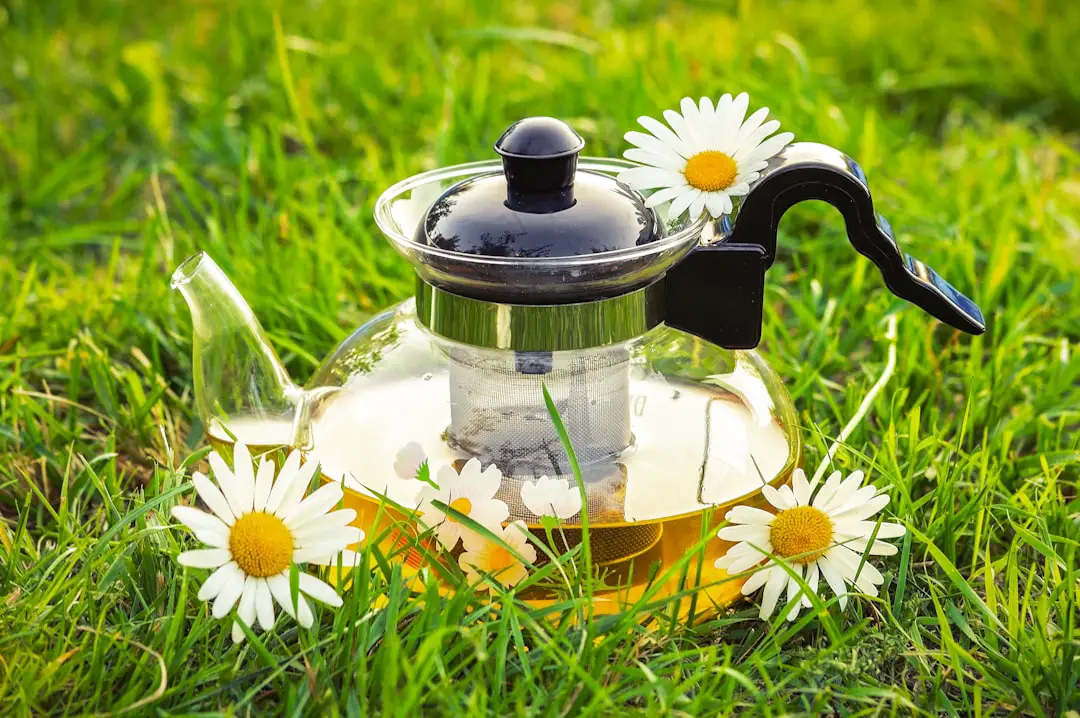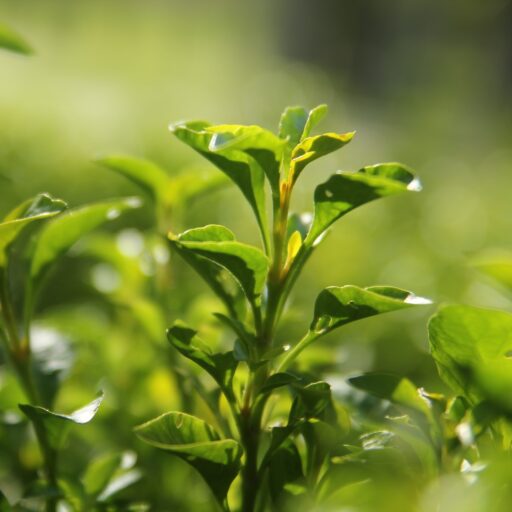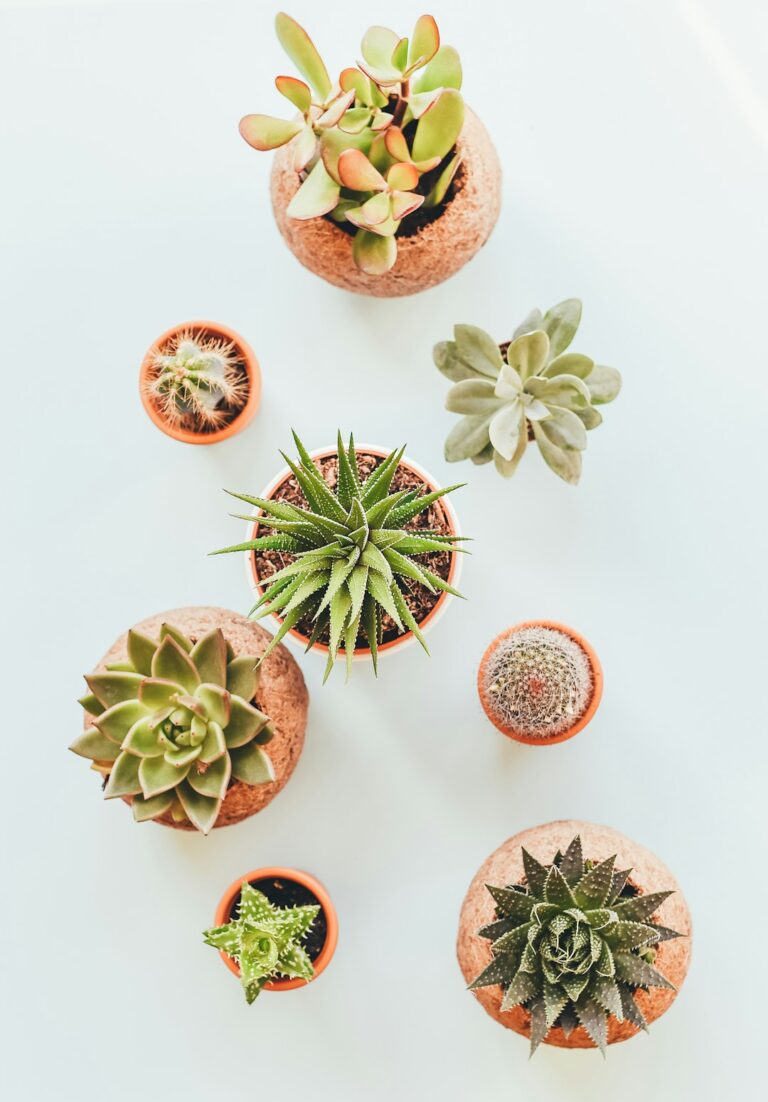Support our educational content for free when you purchase through links on our site. Learn more
What Herbs to Grow for Your Own Tea? 🌿 10 Must-Haves!
Imagine stepping into your backyard and plucking fresh leaves to brew the perfect cup of tea. Sounds dreamy, right? Growing your own tea herbs not only saves you a trip to the store, but it also allows you to create unique blends tailored to your taste and health needs. In this article, we’ll explore 10 essential herbs that are easy to grow and perfect for making delightful teas. From the refreshing zing of peppermint to the soothing aroma of chamomile, your herbal tea garden can become a sanctuary of flavors and wellness.
Did you know that herbal teas have been used for centuries not just for their delightful tastes but also for their medicinal properties? According to Healthline, many herbs can help reduce stress, boost immunity, and improve digestion. So, why not harness these benefits right from your garden? Let’s dive into the world of herbal tea gardening and discover how you can cultivate your own soothing brews!
Key Takeaways
- Choose the Right Herbs: Start with easy-to-grow options like peppermint, chamomile, and lemon balm.
- Health Benefits: Many herbs offer medicinal properties, enhancing your well-being.
- Growing Tips: Ensure proper sunlight, soil, and watering to cultivate a thriving tea garden.
- Customization: Create unique blends tailored to your taste preferences and health needs.
Ready to get started? Check out our recommended products for your herbal tea garden:
- Organic Potting Soil Mix: Shop here
- Gardening Tools: Explore options
Let’s brew some magic! 🌼
Table of Contents
- Quick Tips and Facts
- The Herbal Tea Revolution: A Brief History
- Top 10 Herbs to Grow for Your Own Tea
- Peppermint: The Refreshing Classic
- Chamomile: The Soothing Sleep Aid
- Lemon Balm: The Zesty Mood Booster
- Lavender: The Aromatic Relaxant
- Rosemary: The Flavorful Brain Booster
- Thyme: The Savory Herbal Wonder
- Sage: The Earthy Antioxidant Powerhouse
- Hibiscus: The Tart and Colorful Delight
- Ginger: The Spicy Immune Supporter
- Echinacea: The Immune System Defender
- Grow Your Own Herbal Tea Garden: Step-by-Step Guide
- Meet Our Contributor: Mary Plantwalker
- Want to Take a Deeper Dive into Medicinal Herbs and Their Uses?
- Pursue Your Dreams of Herbal Gardening!
- 7 Thoughts on “How to Grow an Herbal Tea Garden”
- Conclusion
- Recommended Links
- FAQ
- Reference Links
Quick Tips and Facts
To get started with growing your own tea garden, check out our related article about 10 Amazing Tea Plants to Grow at Home! 🌿. Here are some quick tips and facts to keep in mind:
- Choose the right herbs: Select herbs that are easy to grow and suitable for your climate. Some popular herbs for tea include peppermint, chamomile, and lemon balm.
- Provide proper care: Most herbs require well-draining soil, full sun, and regular watering. Make sure to research the specific needs of each herb you plan to grow.
- Harvest at the right time: Harvest your herbs at the right time to ensure optimal flavor and potency. For example, harvest mint leaves just before they flower for the best flavor.
Benefits of Growing Your Own Tea Garden
Growing your own tea garden can be a fun and rewarding experience. Not only will you have access to fresh, high-quality herbs, but you’ll also be able to customize your tea blends to your liking. Plus, growing your own herbs can be a great way to relax and connect with nature.
The Herbal Tea Revolution: A Brief History

The use of herbal teas dates back thousands of years, with ancient civilizations using herbs for medicinal and spiritual purposes. In recent years, there has been a resurgence of interest in herbal teas, with many people turning to them as a natural alternative to traditional tea and coffee. According to Healthline, herbal teas can offer a range of health benefits, from reducing stress and anxiety to boosting immune function.
The Rise of Herbal Tea Gardens
As interest in herbal teas has grown, so has the popularity of herbal tea gardens. These gardens are dedicated to growing a variety of herbs that can be used to make tea, from classic herbs like peppermint and chamomile to more exotic options like lemon verbena and rose petals. For more information on creating your own herbal tea garden, check out our category on Herbal Tea Planting.
Top 10 Herbs to Grow for Your Own Tea
Here are our top 10 picks for herbs to grow in your own tea garden:
- Peppermint: The Refreshing Classic
Peppermint is a hardy, easy-to-grow herb that’s perfect for tea. It prefers well-draining soil and full sun, and can be harvested at any time. For more information on growing peppermint, check out our article on Green Tea Cultivation. - Chamomile: The Soothing Sleep Aid
Chamomile is a calming, soothing herb that’s perfect for bedtime tea. It prefers well-draining soil and full sun, and can be harvested when the flowers are in bloom. According to WebMD, chamomile can help with sleep and anxiety. - Lemon Balm: The Zesty Mood Booster
Lemon balm is a light, citrusy herb that’s perfect for uplifting tea blends. It prefers well-draining soil and partial shade, and can be harvested at any time. For more information on using lemon balm in tea blends, check out our category on DIY Tea Blending. - Lavender: The Aromatic Relaxant
Lavender is a calming, soothing herb that’s perfect for promoting relaxation. It prefers well-draining soil and full sun, and can be harvested when the flowers are in bloom. According to MindBodyGreen, lavender can help with stress and anxiety. - Rosemary: The Flavorful Brain Booster
Rosemary is a fragrant, herbaceous herb that’s perfect for cognitive function and focus. It prefers well-draining soil and full sun, and can be harvested at any time. For more information on using rosemary in tea blends, check out our article on Health Benefits of Tea. - Thyme: The Savory Herbal Wonder
Thyme is a versatile, savory herb that’s perfect for adding depth to tea blends. It prefers well-draining soil and full sun, and can be harvested at any time. According to The Spruce Eats, thyme can be used in a variety of dishes, from soups to sauces. - Sage: The Earthy Antioxidant Powerhouse
Sage is a fragrant, earthy herb that’s perfect for adding antioxidant power to tea blends. It prefers well-draining soil and full sun, and can be harvested at any time. For more information on using sage in tea blends, check out our category on Soil and Climate for Tea. - Hibiscus: The Tart and Colorful Delight
Hibiscus is a vibrant, tart herb that’s perfect for adding a pop of color to tea blends. It prefers well-draining soil and full sun, and can be harvested when the flowers are in bloom. According to Food Network, hibiscus can be used to make a variety of teas, from hot to iced. - Ginger: The Spicy Immune Supporter
Ginger is a spicy, warming herb that’s perfect for supporting immune function. It prefers well-draining soil and partial shade, and can be harvested at any time. For more information on using ginger in tea blends, check out our article on DIY Tea Blending. - Echinacea: The Immune System Defender
Echinacea is a flowering herb that’s perfect for supporting immune function. It prefers well-draining soil and full sun, and can be harvested when the flowers are in bloom. According to Healthline, echinacea can help support immune function and reduce inflammation.
Grow Your Own Herbal Tea Garden: Step-by-Step Guide
Growing your own herbal tea garden is easier than you think! Here’s a step-by-step guide to get you started:
- Choose a location: Select a spot that gets plenty of sunlight and has well-draining soil.
- Prepare the soil: Add compost or fertilizer to the soil to give your herbs a boost.
- Plant your herbs: Plant your herbs in the ground or in containers, depending on your preference.
- Water and maintain: Water your herbs regularly and maintain the soil to keep them healthy and thriving.
Tips for Growing a Thriving Herbal Tea Garden
Here are some tips for growing a thriving herbal tea garden:
- Use high-quality soil: Use soil that is rich in nutrients and has good drainage.
- Provide adequate sunlight: Most herbs require at least 4-6 hours of direct sunlight per day.
- Water regularly: Water your herbs regularly, but make sure not to overwater.
Meet Our Contributor: Mary Plantwalker
Mary Plantwalker is a seasoned gardener and herbalist with a passion for growing and using herbs for tea. She has been growing her own herbal tea garden for years and is excited to share her knowledge with you. For more information on herbal tea gardening, check out Mary’s article on Herbal Tea Planting.
Want to Take a Deeper Dive into Medicinal Herbs and Their Uses?
If you’re interested in learning more about medicinal herbs and their uses, check out our category on Health Benefits of Tea. We have a wealth of information on the benefits of herbal teas, from reducing stress and anxiety to boosting immune function.
Exploring the World of Medicinal Herbs
Medicinal herbs have been used for centuries to promote health and wellness. From calming chamomile to invigorating ginger, there are countless herbs to explore and learn about. For more information on medicinal herbs, check out our article on 10 Amazing Tea Plants to Grow at Home!.
Pursue Your Dreams of Herbal Gardening!
Whether you’re a seasoned gardener or just starting out, pursuing your dreams of herbal gardening can be a rewarding and fulfilling experience. With a little patience and practice, you can grow your own herbal tea garden and enjoy the many benefits of herbal teas. For more information on getting started with herbal gardening, check out our category on Herbal Tea Planting.
7 Thoughts on “How to Grow an Herbal Tea Garden”
Here are 7 thoughts on how to grow an herbal tea garden:
- Start small: Begin with a few easy-to-grow herbs and gradually add more to your garden.
- Choose the right herbs: Select herbs that are suitable for your climate and growing conditions.
- Provide proper care: Make sure to water, fertilize, and prune your herbs regularly.
- Use high-quality soil: Use soil that is rich in nutrients and has good drainage.
- Provide adequate sunlight: Most herbs require at least 4-6 hours of direct sunlight per day.
- Keep it simple: Don’t be afraid to start small and keep your garden simple.
- Have fun: Growing an herbal tea garden is a fun and rewarding experience, so be sure to enjoy the process! 🌼
If you’re looking for products to help you get started with your herbal tea garden, check out these options:
- Fort Vee – Organic Potting Soil Mix: Amazon | Walmart | Fort Vee Official Website
- Corona Multi-Purpose Metal Mini Garden Shovel: Amazon | Walmart | Corona Official Website
Conclusion

Growing your own herbal tea garden is not just a delightful hobby; it’s a journey into the world of flavors, aromas, and health benefits! By cultivating herbs like peppermint, chamomile, and lavender, you can create your own unique blends that are fresher and more vibrant than anything you can find in a store.
Summary of Positives and Negatives
Positives:
- Customization: You can tailor your tea blends to suit your taste and health needs.
- Freshness: Homegrown herbs offer unparalleled flavor and potency.
- Health Benefits: Many herbs have medicinal properties that can enhance your well-being.
Negatives:
- Space Requirements: Some herbs need more space than others, which can be a challenge in small gardens.
- Maintenance: Growing herbs requires regular care, including watering, pruning, and pest management.
Overall, we confidently recommend starting your own herbal tea garden! 🌱 It’s a fulfilling way to connect with nature, enjoy fresh flavors, and promote your health.
Recommended Links
- 👉 Shop Herbal Tea Garden Supplies:
- Fort Vee – Organic Potting Soil Mix: CHECK PRICE on Amazon | CHECK PRICE on Walmart | Fort Vee Official Website
- Corona Multi-Purpose Metal Mini Garden Shovel: CHECK PRICE on Amazon | CHECK PRICE on Walmart | Corona Official Website
- Books on Herbal Tea Gardening:
FAQ

What are the easiest herbs to grow for tea beginners?
🌿 Easiest Herbs for Beginners
- Peppermint: Hardy and forgiving, it thrives in various conditions.
- Chamomile: Requires minimal care and rewards you with soothing flowers.
- Lemon Balm: A resilient herb that grows quickly and is great for tea.
Read more about “10 Amazing Tea Plants to Grow at Home! 🌱”
How do I dry and store my homegrown herbs for tea?
🌬️ Drying and Storing Herbs
- Harvest: Pick herbs on a dry, sunny day.
- Drying: Hang herbs upside down in small bunches in a dark, dry place. Alternatively, use a dehydrator or an oven set to low heat.
- Storage: Once dried, store herbs in airtight glass containers in a cool, dark place. They can last up to two years if stored properly.
Read more about “Discover 10 Amazing Tea Plant Seeds for Your Garden! 🌱”
What are the most popular herbal tea blends to grow at home?
🍵 Popular Herbal Tea Blends
- Chamomile and Lavender: Calming and aromatic.
- Peppermint and Ginger: Refreshing and invigorating.
- Lemon Balm and Echinacea: Uplifting and immune-boosting.
Read more about “🌱 Growing Teas: 12 Essential Tips for Home Cultivation …”
Can I grow herbs for tea indoors, and if so, what are the best options?
🏡 Indoor Herb Growing
Yes, you can grow herbs for tea indoors! Some of the best options include:
- Mint: Thrives in pots and requires minimal light.
- Thyme: Compact and aromatic, perfect for windowsills.
- Basil: Needs bright light but can flourish indoors with proper care.
What soil is best for growing tea herbs?
🌱 Best Soil for Tea Herbs
A well-draining, nutrient-rich soil is ideal. Consider using a mix of potting soil and compost to provide the necessary nutrients while ensuring good drainage.
Read more about “Grow Your Own Herbal Tea: 7 Essential Tips for Success 🌿 …”
How often should I water my tea herbs?
💧 Watering Frequency
Most herbs prefer evenly moist soil. Water them when the top inch of soil feels dry, typically every few days, depending on the climate and pot size.
Read more about “Unlock the Secrets of 15 Herbs for Tea Blending at Home 🌿”
Reference Links
- Healthline on Herbal Tea Benefits
- Fine Gardening on Herbal Tea Gardens
- Grab N’ Grow Soil on How to Grow Your Own Tea Garden Herbs
- Chestnut Herbs on Growing an Herbal Tea Garden
By following these guidelines and recommendations, you’ll be well on your way to enjoying the delightful world of homemade herbal teas! Happy gardening! 🌼


